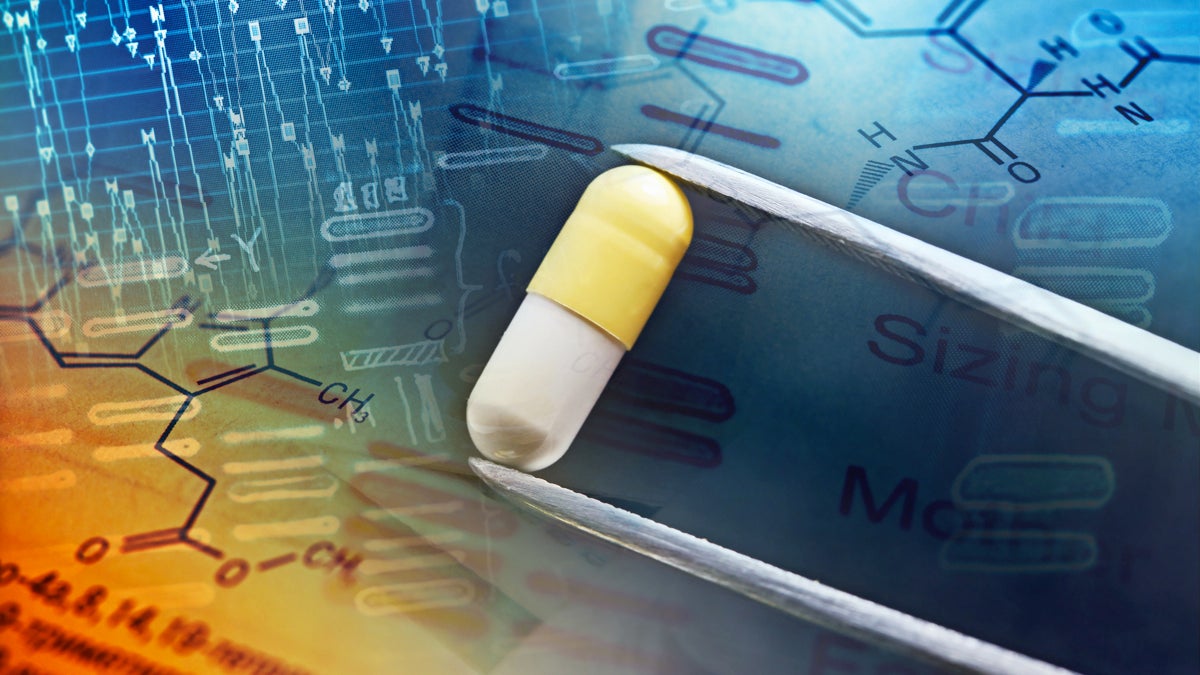Biosimilars take center stage as FDA considers first U.S. application
Listen Photo via ShutterStock) " title="biosimilar" width="1" height="1"/>
Photo via ShutterStock) " title="biosimilar" width="1" height="1"/>
(Photo via ShutterStock)
The region’s biotech industry has its eye on a major FDA meeting Wednesday as an oncology advisory group will review the first U.S. application for a biosimilar.
How the FDA acts on the application could have implications for the industry as well as for patients and providers.
Biosimilars vs. generics
Generic drugs are essentially direct copies of chemically synthesized drugs.
When a patent runs out on a name-brand drug, other manufacturers can apply for FDA approval to create cheaper generic versions without going through the same rigorous clinical development and testing process.
Biologic drugs, a small but important portion of the U.S. drug market, are a lot more complicated.
“Compared to typical drugs, they are much larger, often a 500 to a 1,000-fold larger molecular size,” explained Jay Siegel, chief biotechnology officer at Johnson & Johnson and a former FDA regulator of biologic drugs. “Most are proteins, and they’re manufactured not by chemical synthesis as most drugs, but by live organisms that for modern biologics have been genetically programmed to make the specific molecule desired.”
One example of a biologic?
Johnson & Johnson’s very own anti-inflammatory treatment Remicade, used for diseases such as rheumatoid arthritis and colitis, and developed right here in the Philadelphia region.
Because biologics are made through a biologic process, it’s difficult to directly replicate them. Biosimilars are similar but not identical to biologic drugs. Developing and marketing them in the U.S. represents uncharted territory.
Creating a biosimilar pathway for approval
On Wednesday, a government panel will review drugmaker Novartis’ application to make a biologic drug similar to Amgen’s popular cancer drug, Neupogen, marking the first biosimilar attempt in the U.S.
“This meeting’s critically important,” said Dan Mendelson, CEO of the health care consulting firm Avalere Health.
While biosimilars have existed in Europe for a decade, the U.S. did not have any mechanism for approving or regulating biosimilars until Congress passed authorizing legislation as part of the Affordable Care Act.
Mendelson said the government review process for Amgen could set the framework for future biosimilars in the U.S.
Experts say how that process unfolds could affect the development and market both for biologics and for biosimilars. Biologics also tend to be a lot more expensive to develop and, in turn, may be a lot higher in price.
“Patients have a very strong vested interest in biosimilars because if they prove successful, they will represent lower cost analogues to drugs that are presently on the market,” he said, adding that the FDA’s focus is on the science of biosimilars and their clinical safety and efficacy.
“The FDA needs to define a process that is validated and accepted by physicians, that requires clinical testing, but not so much that it inhibits the clinical development of these products.”
Siegel, who plans to attend the meeting, said he’s especially interested in how the panel approaches the analytical component for biosimilar applications, and the level and type of clinical testing the FDA will ultimately require of companies like Novartis.
“How much is enough? How much can you determine based on the high degree of similarity?” said Siegel. “How much residual uncertainty exists, and what are the necessary clinical studies to deal with that residual uncertainty, so that you can offer the product safely to patients?”
It’s unclear how soon after Wednesday’s meeting the panel will make its recommendations to the FDA, but least two other companies have submitted U.S. applications for biosimilars.
One is for a drug already approved outside the U.S. that’s similar to Johnson & Johnson’s Remicade, which starts losing its U.S. patent in 2018.
CORRECTION: In one instance above, biosimilar manufacturer applicant Novartis was misidentified as Amgen. The correction has been made.
WHYY is your source for fact-based, in-depth journalism and information. As a nonprofit organization, we rely on financial support from readers like you. Please give today.

